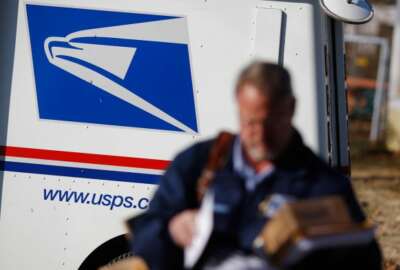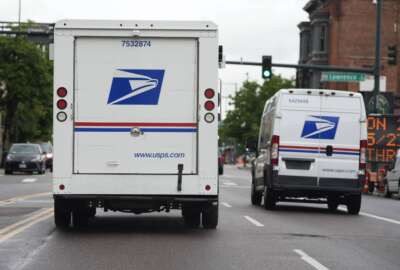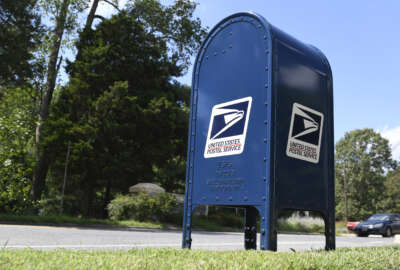‘Monumental task’ for USPS employees to recover from payroll glitch, rural carrier union says
Tens of thousands of the Postal Service’s rural carriers saw a rocky start to this month, after a USPS payroll error resulted in missing and incomplete paychecks.
Tens of thousands of the Postal Service’s rural carriers saw a rocky start to this month, after a USPS payroll error resulted in missing and incomplete paychecks.
The National Rural Letter Carriers Association estimates USPS payroll issues impacted approximately 53,000 rural carrier employees.
The vast majority of those impacted — about 45,000 employees — were non-career rural carriers that cover routes for full-time career mail carriers as needed.
Rural carriers shared images with Federal News Network showing that their Sept. 1 pay stubs totaled $0 in take-home pay.
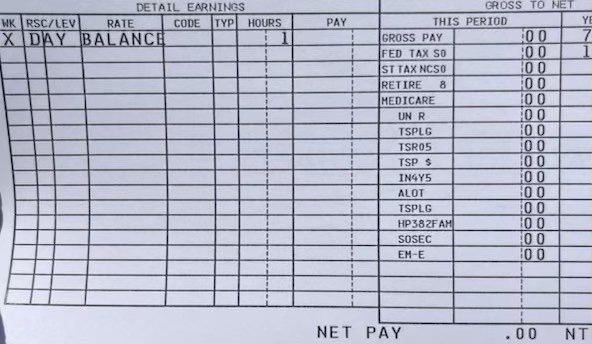
USPS offered a workaround to impacted employees ahead of the last payday – a “salary advance” issued as a money order.
Rural carriers who accepted the money orders would receive 65% of their gross pay – a rough estimate of their typical take-home pay.
NRLCA said impacted rural carriers will have to pay back their salary advance, but won’t be required to pay it back until after USPS has repaid them the correct amount.
NRLCA National President Don Maston said in a recent interview that the recent USPS payroll issue caused more of a headache than any other IT glitch of its kind in recent history.
“In my career, I’ve never seen one this large before, so it was a pretty monumental task to make sure everybody got paid,” Maston said. “The system basically didn’t have the information to input the way it needed to get them paid correctly.”
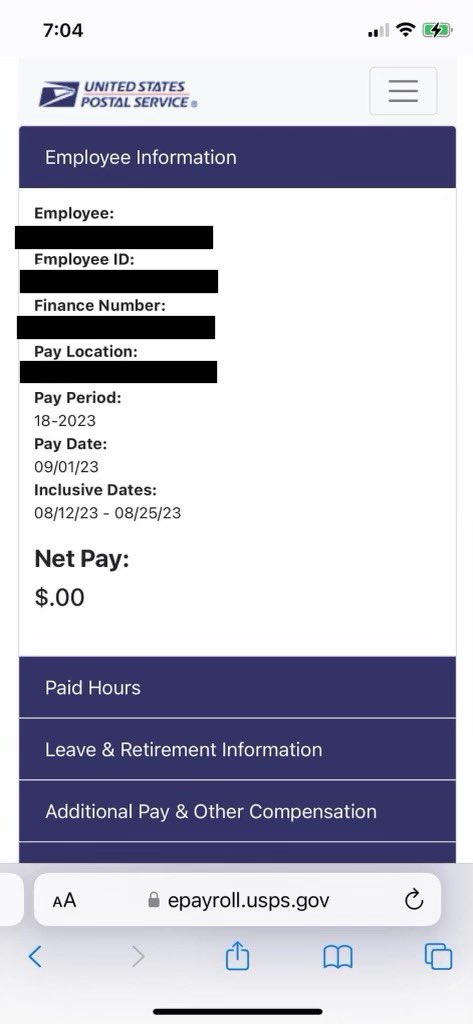
USPS spokesman David Partenheimer referred Federal News Network to an Aug. 31 statement, in which it said USPS “identified a programming issue within its payroll system” that impacted some rural carriers’ paychecks scheduled to go out on Sept. 1.
“We have taken immediate steps to ensure employees will be paid through a salary advance in the form of a money order,” Partenheimer said. “The programming issue has been identified and remediated.”
Despite the magnitude of the payroll problem, Maston said the union saw “very few issues” with impacted carriers getting their salary advances.
“While it never should have happened, and we certainly don’t want this to ever happen again … just about everybody was taken care of,” he said.
Maston said that rural carriers impacted by the payroll issue should expect to receive their next paycheck on Sept. 15 without issue.
“As far as getting back on their regular pay schedule, I fully believe that will be in place. I have no reason to suspect otherwise,” he said.
However, Maston said USPS has yet to resolve “100% of the harm” that carriers experienced.
Full-time regular rural carriers should have an easier time receiving their backpay for the Sept. 1 pay period, because they typically deliver on the same route each day.
“That’s a lot easier, streamlined process, because there’s one route, one carrier,” Maston said. “But when you have the leave replacements, they may have worked on Route One for one day, Route Two for a different day, provided auxiliary assistance for a few hours on a different route another day. They have multiple certificates that would have to be processed and pay adjustments, so that might take a little bit longer.”
The salary advances also left some rural carriers struggling to cover for deductions that automatically pay out of an employee’s paycheck or their checking account – including rent or mortgage payments.
“If you had car payments or direct deposits for mortgages, things of that nature. And those come out of your check. Those weren’t automatic. You would have had to contact your banking institution and make arrangements to get those paid right away,” Maston said.
A rural carrier based in Georgia told Federal News Network said this was the eighth time he experienced pay issues – and that six of them resulted from his manager inputting his hours incorrectly.
“Our mortgage is due on the first. Other bills are due that will trigger late fees. With all the other times this has happened, we’ve paid almost 1k in late fees. We don’t get those refunded by USPS,” the carrier wrote.
The carrier also wrote that his station didn’t issue salary advances as directed by the union.
“They flat out refused,” the carrier wrote.
Maston said that, aside from a few carriers who didn’t want the salary advance in lieu of their paycheck, nearly all impacted carriers received a money order by the end of the day on Sept. 1.
“I’ll never say 100% with the Post Office, because I’m sure there’s some out there that were not resolved [that] we don’t know about,” he said.
Maston said NRLCA’s executive committee members monitored the rollout of the money orders to impacted carriers, and none of them had much to report, “except for a couple of minor incidents that had been resolved prior to the close of business.”
Maston said that in addition to the union’s own communications, USPS put out “strong messaging to the field that this was not optional, this was going to happen.”
“They provided to every office the actual number that each carrier was supposed to be paid — so it wasn’t left for the individual supervisors and postmasters to calculate with their best guess what it should be, because some of them are more complicated than others,” Maston said.
Nearly Useless Factoid
Belgium has a strawberry museum
Source: Musee de la fraise
Copyright © 2025 Federal News Network. All rights reserved. This website is not intended for users located within the European Economic Area.
Jory Heckman is a reporter at Federal News Network covering U.S. Postal Service, IRS, big data and technology issues.
Follow @jheckmanWFED




